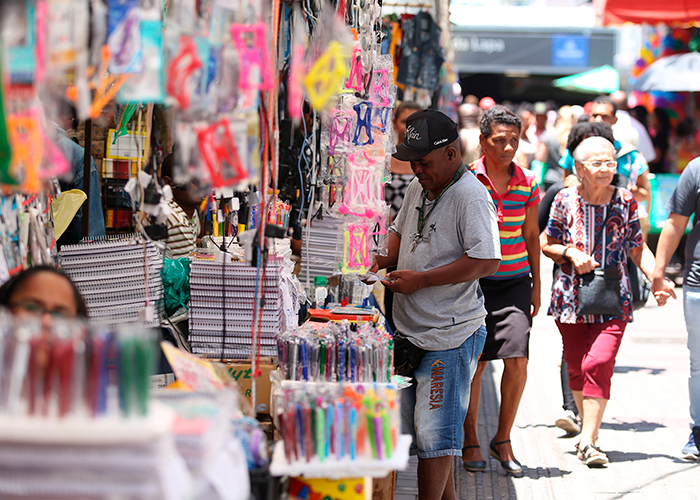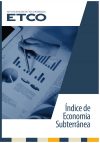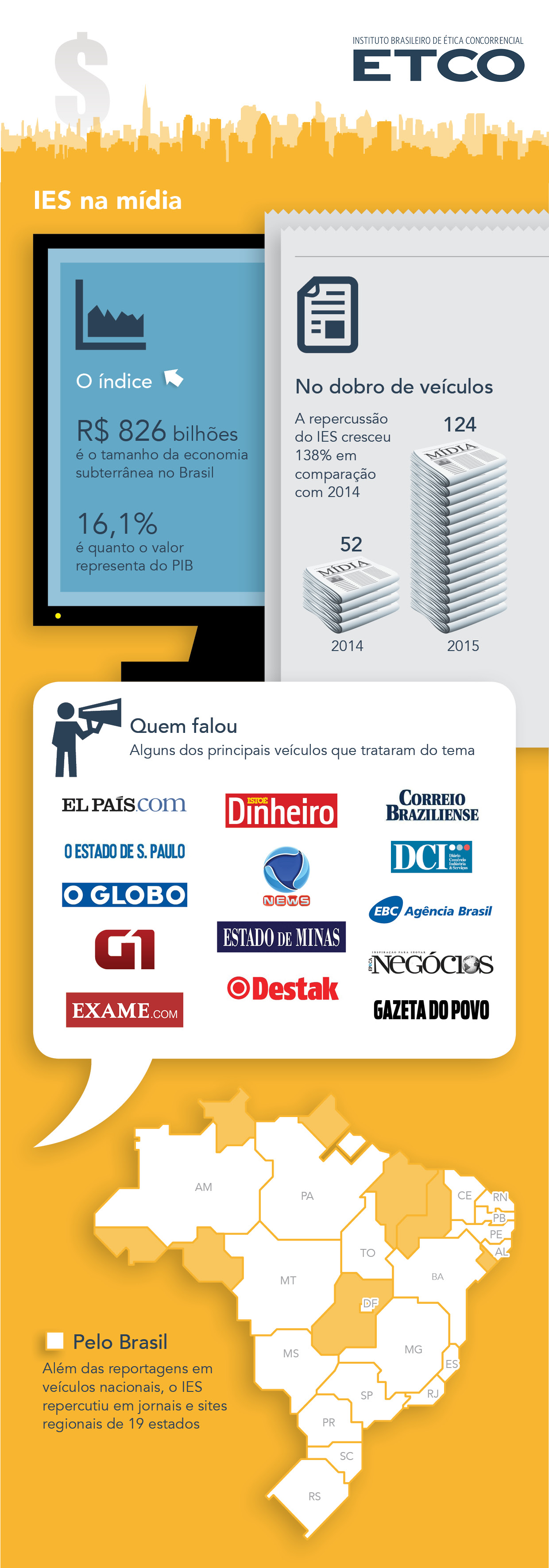Falling interest rates, the slow recovery of formal employment and activity are beginning to contain the faster growth of the informal economy. Despite being on the margins of legality and the payment of taxes, the informal economy has played an important role in guaranteeing some income for the large mass of unemployed people that exist in the country today. In 2019, the informal economy advanced for the fifth straight year, but at a slower pace than the previous one. In the 12 months through June, the informal economy moved the equivalent of 17,3% of the country's Gross Domestic Product (GDP). It is still a very significant portion of the economy, the largest in the last eight years and corresponding to R$ 1,2 trillion. However, this year there is the first sign of a slowdown. That's what points Underground Economy Index (HEI), calculated by the Brazilian Institute of Economics (Ibre) of the Getúlio Vargas Foundation (FGV) in partnership with the Brazilian Institute of Ethics in Competition (ETCO). In the criteria used by FGV , shadow economy includes the production of goods and services not declared to the government to evade taxes and contributions, in order to reduce costs.
Tag: IES
Slice of the informal economy in Brazilian GDP grows in 2016, says study
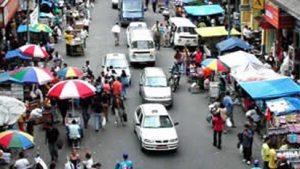 The participation of the informal market in the Brazilian economy grew again in 2016, reflecting the economic crisis in the country, which has affected formal employment, according to a survey released on Monday.
The participation of the informal market in the Brazilian economy grew again in 2016, reflecting the economic crisis in the country, which has affected formal employment, according to a survey released on Monday.
The so-called underground economy - production of goods and services not reported to the government deliberately - reached 16,3 percent of GDP, against 16,2 percent in 2015, according to a study carried out by the Brazilian Institute of Ethics in Competition (ETCO) and the Brazilian Institute of Economics at Fundação Getulio Vargas (FGV / IBRE).
Comparatively, the participation of the informal economy in GDP exceeds that of the Northeast (12,3%), Midwest (9,5%) and North (5,8%) regions.
In nominal terms, the informal market moved 983,283 billion reais in 2016, compared to 956,96 billion reais in the previous year.
According to FGV / IBRE researcher, Fernando de Holanda Barbosa Filho, responsible for the study, the informal market is also affected by the crisis, but, as it manages to dampen a little more than the formal market, it has increased its relative weight in the economy .
"The crisis disturbs everyone," Barbosa Filho told Reuters, adding that this worsening should stop when the economic crisis in the country passes.
For now, however, the signs are not optimistic. The IBGE announced last week that Brazilian GDP shrank 0,8 percent in the third quarter compared to the previous three months, in the seventh quarter followed by contraction and with the biggest retraction in the year on this basis of comparison.
In the same vein, the Ministry of Labor's General Register of Employed and Unemployed (Caged) showed that 751.816 formal vacancies were closed in Brazil in the first ten months of the year, in the adjusted series.
(By Paula Arend Laier)
Reuters - 06/12/2016
Underground economy grows again
by Evandro Guimarães and Fernando de Holanda Barbosa Filho (*)
The Brazilian underground economy represented, in 2015, 16,2% of the Brazilian GDP and grew in relation to 2014 (16,1%). This is the first growth in the annual comparison started in 2003, the initial year of the Underground Economy Index, built in partnership between the Brazilian Institute of Ethics in Competition (ETCO) and the Brazilian Institute of Economics of the Getulio Vargas Foundation (FGV / IBRE).
The underground economy is the production of goods and services deliberately not reported to the government, with the objective of evading taxes and evading Social Security contributions, laws, labor regulations and other norms that cause costs.
Failure to comply with laws and regulations, in addition to harming consumers, allows companies that use this expedient to continue operating. Companies that respect the law, on the other hand, suffer unfair competition, as they have competitors that do not bear all costs.
The increase in informality, although reduced, breaks the sequence of falls in this part of the activity that operates outside the law, and should be a cyclical event. The set of policies adopted that contributed to the recent reduction of the underground economy are still in operation and should return to the downward trend as soon as the crisis eases.
The reduction in the underground economy over the past few years (equivalent to 21% of Brazilian GDP in 2003) was the result of a set of measures that made the formalized activity more attractive. We observed a strong expansion of the credit market and a gradual increase in the average schooling of the population. The expansion of credit stimulated the formalization of both companies and workers. Formalizing the company and employment is, in most cases, an essential condition for accessing the credit market. The expansion of formal education raises wages, the bargaining power of workers and increases their chances of getting formal employment.
There was also the adoption of measures that sought to simplify compliance with legal norms and reduce their costs, such as the creation of Simples, Simples Nacional and Individual Microentrepreneur (MEI).
The reduction of the underground economy is important for the country. Informality brings direct damage to society, creates an environment of transgression, stimulates opportunistic economic behavior, with a drop in the quality of investment and a reduction in the growth potential of the Brazilian economy. The road is long, much has been achieved, but we still have a lot to do.
* Evandro Guimarães, Executive President of ETCO, and Fernando de Holanda Barbosa Filho, researcher at FGV / IBRE
Understand the Underground Economy Index
Since 2007, ETCO – Brazilian Institute of Competition Ethics, together with the Brazilian Institute of Economics of the Getúlio Vargas Foundation (Ibre/FGV), have published the Underground Economy Index (IES), a study that estimates the size of the informal economy in the country. .
PDF version: UNDERSTAND THE UNDERGROUND ECONOMY INDEX
What is underground economy
A underground economy is the production of goods and services not reported to the government deliberately to:
- Evade taxes.
- Evade social security contributions.
- Circumvent compliance with labor laws and regulations.
- Avoid costs resulting from the rules applicable to each activity.
The partnership between ETCO and Ibre/FGV to monitor the underground economy provides the country with the main indicator of the evolution of informal activities. Knowing the size of the problem is fundamental to combating it. In Brazil, informality is stimulated by high tax burden, corruption and unemployment. The result is well known: evasion, smuggling and piracy, which generate serious competitive imbalances.
How is it calculated?
O Underground Economy Index is calculated by averaging two important economic indicators.
monetary method = Increase in the currency due to the tax burden and the informality of work.
Informal work = Percentage of workers without a formal contract and income from informal work.
Composition of shadow economy
Illegal activities
monetary transactions
Sale of stolen goods and products, drugs, prostitution, gambling, smuggling and fraud.
non-monetary transactions
Trading drugs, stolen goods, contraband, etc.
Theft and production of drugs for own consumption.
legal activities
Undeclared income self-employed and informal worker.
Norms and rules applicable in a given activity.
Exchange of legal goods and services. Work carried out at home and/or with neighbors.
Underground economy historical series
Check the evolution of the Underground Economy Index since 2003
After 11 years, participation of the informal economy grows again in GDP
po MÁRCIA DE CHIARA - THE STATE OF S.PAULO
Slice of informality increased to 16,2% last year, according to the FGV and ETCO indicator
Driven by the crisis, the participation of the informal economy in the Brazilian Gross Domestic Product (GDP) increased again in 2015, after 11 years of consecutive falls. Last year, the share of the underground economy in all the wealth generated in the country was 16,2%, points out the Underground Economy Index (HEI), ascertained by the Brazilian Institute of Economics (Ibre) of the Getúlio Vargas Foundation (FGV), in partnership with the Brazilian Institute of Competition Ethics (ETCO). In absolute numbers, R $ 956,8 billion of wealth was generated informally last year.
KNOW MORE: UNDERSTAND THE UNDERGROUND ECONOMY INDEX (HEI)
In 2003, when the indicator started to be calculated, the underground economy accounted for 21% of GDP. Since then, IES fell year on year and reached 16,1% in 2014. Last year, due to the crisis, there was a reversal of the fall: the underground economy had a slight growth and advanced 0,1 percentage point in the compared to 2014. According to FGV, the underground economy includes the production of goods and services not declared to the government to evade taxes and contributions in order to reduce costs.
"The vigor of the crisis affected the entire economy, including the underground economy, which registered growth," observes Fernando de Holanda Barbosa Filho, a researcher at Ibre / FGV and responsible for the indicator.
The economist says he expected a higher increase in the indicator, which, according to him, was mitigated by a certain resistance in the labor market. The shadow economy index is calculated from two groups of indicators. One of them is the population's demand for cash, which normally grows when informality increases, as this is a way of circumventing the tax authorities. The other group is the indicator of informal work.
Barbosa Filho explains that the demand for cash grew from 2014 to 2015, but the informality of work was practically stabilized. "As it took time for the labor market to worsen, the increase in the informal economy's share of GDP was only 0,1 percentage point," says the economist.
For this year, he expects a greater advance in the share of the informal economy in the Brazilian GDP. Anyway, after the crisis, Barbosa Filho believes that the share of the underground economy in GDP should fall again because, in his assessment, the institutions to reduce the size of the underground economy continued to function. "What led to this increase in informality was the size of the crisis."
Simple. Looking at the indicator for a longer period, ETCO's executive president, Evandro Guimarães, makes a different analysis. He notes, for example, that since 2012 the shadow economy indicator has been around 16% of GDP, which, in his opinion, signals a certain stabilization.
“The rate of decline in the shadow economy, which had been systematically pointing to a significant reduction, stopped falling as it did before”, says Guimarães. Between 2003 and 2012, the reduction in the shadow economy's share of GDP was five percentage points. The ETCO president points out that some institutional mechanisms that helped in this reduction are being “expired”.
Among these mechanisms, he points to the implementation of Simples and individual micro-enterprise (MEI). “Also other employment and income efforts that have lost their relative effectiveness at the moment,” he says. For Guimarães, Simples is no longer a vigorous instrument of formalization. “The fact that the company is in Simples does not mean that it has 100% of the operation formalized. We have always seen in the news and in real life that companies that adhere to Simples also have a share of informality in their operations. ”
The ETCO president defends a re-evaluation of the inspection instruments. “We perceive a small real effort to evaluate the existing mechanisms.”
Article published in the newspaper O Estado de São Paulo, on 28/06/2016.
Repercussion of the Underground Economy Index grows 138%
In June, ETCO-Instituto Brasileiro de Ética Concorrencial released the Subterranean Economy Index (IES), from the research it conducts in partnership with the Brazilian Institute of Economics of Function Getúlio Vargas (FGV / IBRE). The IES measures the size of informal activities, which include smuggling, counterfeiting, tax evasion and other illegal practices combated by ETCO.
The release of the index draws the attention of society and authorities to the problem. The most recent study, showing stagnation in the rate of decline in informality, obtained media coverage of 138% more vehicles than the previous survey. Next, see the highlights of the impact of IES in the media.
Underground economy falls little in 2014 and should grow again in the country
ETCO and FGV / IBRE study shows that the informal market moved R $ 826 billion in 2014, equivalent to 16,1% of the Brazilian GDP
Watch the article that deals with the latest edition of the Underground Economy Index (HEI), released by ETCO in conjunction with the Brazilian Institute of Economics of the Getulio Vargas Foundation (FGV/IBRE). According to the study, the informal market, which corresponds to the production of goods and services not deliberately reported to the government, moved BRL 826 billion in 2014, a value that corresponds to 16,1% of the Gross Domestic Product (GDP) of the country and points to a slight reduction of 0,2 percentage point in relation to the previous year.
Underground Economy Index dramatically slows down in 2014
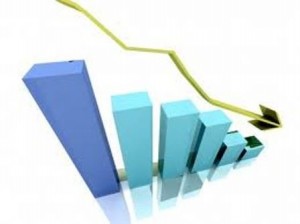 Disclosed on November 12, the share of the underground economy in GDP, measured by the ETCO's Underground Economy Index (IES) in conjunction with the Brazilian Institute of Economics of the Getúlio Vargas Foundation (FGV / IBRE), should reach 16,2% in 2014. The result represents a decrease of 0,1 percentage point in comparison with 2013 and indicates a tendency towards a slower pace in reducing informality.
Disclosed on November 12, the share of the underground economy in GDP, measured by the ETCO's Underground Economy Index (IES) in conjunction with the Brazilian Institute of Economics of the Getúlio Vargas Foundation (FGV / IBRE), should reach 16,2% in 2014. The result represents a decrease of 0,1 percentage point in comparison with 2013 and indicates a tendency towards a slower pace in reducing informality.
In absolute values, the estimate is that the underground economy - the production of goods and services not reported to the government, which is outside the national GDP - exceeds the R $ 830 billion mark in 2014.
In the evaluation of FGV / IBRE researcher, Fernando de Holanda Barbosa Filho, the result was directly impacted by the low growth of the economy in the year. “The economy is slowing down, as well as credit, and employment has grown little. This has a direct impact on formal work, which naturally falls, giving way to informality ”, he explains. According to him, not even the tax exemption policy applied in 2013, which now becomes definitive, was sufficient to face the low economic performance and maintain the downward pace of the underground economy. "However, were it not for the exemptions, we could have an even more severe picture", analyzes the researcher.
For him, even the implementation of MP 615/13, which extends exemptions for new activities, should not change the scenario much from now on, “because the relief of the tax burden has already reached most sectors and its effects have already been captured” .
For ETCO's Executive President, Evandro Guimarães, “there is no denying the importance of exemptions for the economy as a whole, but, as far as we can see, their effectiveness with regard to formalization, tends to stabilize”. According to him, these measures should be analyzed from a more lasting perspective. "It is the moment to carry out the long-awaited tax simplification, so that the tax relief reaches more broadly the productive sectors of the economy".
What is certain is that informality brings direct losses to society, creates an environment of transgression, stimulates opportunistic economic behavior, with a drop in the quality of investment and a reduction in the growth potential of the Brazilian economy. In addition, it causes a reduction in government resources for social programs and investments in infrastructure.


